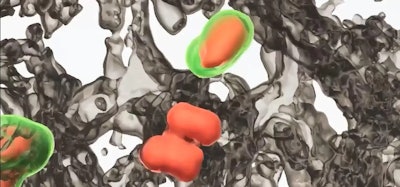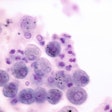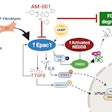
Researchers from the University of Calgary’s Cumming School of Medicine have discovered a type of nerve cell that usually detects pain also helps control pulmonary inflammation. The findings, which were published in the journal Immunity, suggest the neurons play a key role in pulmonary fibrosis.
“Our research into the role of the nervous system in lung diseases is new, and our discovery opens up the possibility of using neurological therapies to treat lung diseases,” said Bryan Yipp, MD, physician-scientist and lead researcher of the study, in a university news release.
The study, “Nociceptor Neurons Suppress Alveolar Macrophage-Induced Siglec-F+ Neutrophil-Mediated Inflammation To Protect Against Pulmonary Fibrosis,” analyzed the neurons in mice. When the researchers removed the specific nerve cells — either through genetic manipulation or drugs — the alveolar macrophages began producing a nerve communication molecule, called a neuropeptide, that caused the cells to function improperly and increased inflammatory lung damage.
 Bryan Yipp, MDUniversity of Calgary
Bryan Yipp, MDUniversity of Calgary
The research team in the Yipp lab said it will continue studying lung scarring with the goal of developing new treatments for pulmonary fibrosis and related conditions.
“Diseases such as seizures and mood disorders are currently being treated with electrical stimulation of nerves,” Dr. Yipp said. “Our findings show the same nerves being treated with electrical devices are the ones responsible for lung protection, so it is conceivable that boosting their function could improve the scarring.”






















